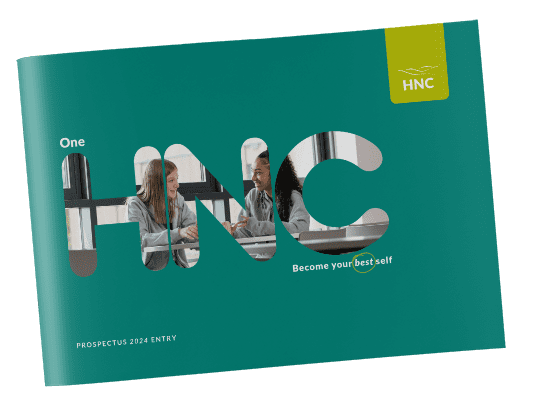You’ll need to meet the entry criteria for your chosen Pathway and achieve a grade 5 in GCSE Science, or a distinction in a vocational Level 2 Science qualification plus a grade 5 in GCSE Maths.
For further information on the pathways, please click here.
This course, which specifically focuses on Human Biology, is equivalent to 1 A Level. It is a hands-on course that will develop your knowledge, understanding and research skills across the Health Sciences, and your topics will include:
• Principles of Applied Human Biology
• Practical microbiology and infectious diseases
• Human Biology and health issues
• Functional physiology
An enriching experience
Studying Applied Human Biology at HNC is an enriching experience. You’ll have plenty of opportunities to develop your skills and interests, broadening your horizons and building your cultural capital. These experiences are integral to life at HNC and will help you to stand out from the crowd. Some of the experiences our Applied Human Biology students enjoy, include:
• Residential visits to stretch and challenge you and build on your cultural capital. This year, Science students spent 10 nights in South Africa, taking part in conservation projects and working with pupils in a rural primary school
• Visits to universities and employers to develop your understanding of the subject and the possible progression routes
• The option to become one of our STEM ambassadors, representing HNC at events such as our Open Days, building key employability skills such as communication and leadership
Enlightening opportunities
We are proud of the unique experiences that are available to our students both inside and outside of the classroom. Our subject specialists will instil in you a love for learning, and challenge you to develop the required skills you’ll need to achieve the life-changing qualifications that will lead you to your dream career.
You will undertake the practical elements of this Applied qualification in our state-of-the-art Science laboratories and will work with our teachers and technicians to develop your knowledge and skills to ensure that you’re ready for your next steps.
How will you be assessed?
Assessment is via assignments and externally assessed exams, including a written task completed under supervised conditions.
Applied Human Biology is a great choice for students looking for a career where they can make a difference to the lives of others. This course gives students a broad understanding of biological principles including cells, tissues, biological molecules, genetics, immunology and practical microbiology as well as diseases, diagnostic techniques and treatments, making it the perfect choice for those who are hoping to progress to a career in the human and health sciences. Popular options include Occupational Health, Physiotherapy, Nursing or Midwifery when combined with Health and Social Care, and Sport Science when combined with Sport.
Applied Human Biology students have recently progressed to university to study subjects such as:
• Midwifery
• Nursing
• Sports Science
• Occupational Health
• Biological Sciences
• Psychology
What does this course go well with or what may you like?







